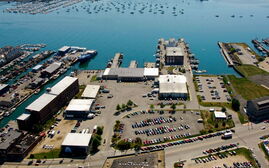Processing Your Payment
Please do not leave this page until complete. This can take a few moments.
- News
-
Editions
-
- Lists
-
Viewpoints
-
Our Events
-
Event Info
- Women's Leadership Forum 2025
- On the Road with Mainebiz in Bethel
- Health Care Forum 2025
- On The Road with Mainebiz in Greenville
- On The Road with Mainebiz in Waterville
- Small Business Forum 2025
- Outstanding Women in Business Reception 2025
- On The Road with Mainebiz in Bath
- 60 Ideas in 60 Minutes Portland 2025
- 40 Under 40 Awards Reception 2025
- On The Road with Mainebiz in Lewiston / Auburn
- 60 Ideas in 60 Minutes Bangor 2025
Award Honorees
- 2025 Business Leaders of the Year
- 2024 Women to Watch Honorees
- 2024 Business Leaders of the Year
- 2023 NextUp: 40 Under 40 Honorees
- 2023 Women to Watch Honorees
- 2023 Business Leaders of the Year
- 2022 NextUp: 40 Under 40 Honorees
- 2022 Women to Watch Honorees
- 2022 Business Leaders of the Year
-
-
Calendar
-
Biz Marketplace
- News
-
Editions
View Digital Editions
Biweekly Issues
- April 21, 2025 Edition
- April 7, 2025
- March 24, 2025
- March 10, 2025
- Feb. 24, 2025
- Feb. 10, 2025
- + More
Special Editions
- Lists
- Viewpoints
-
Our Events
Event Info
- View all Events
- Women's Leadership Forum 2025
- On the Road with Mainebiz in Bethel
- Health Care Forum 2025
- On The Road with Mainebiz in Greenville
- On The Road with Mainebiz in Waterville
- + More
Award Honorees
- 2025 Business Leaders of the Year
- 2024 Women to Watch Honorees
- 2024 Business Leaders of the Year
- 2023 NextUp: 40 Under 40 Honorees
- 2023 Women to Watch Honorees
- 2023 Business Leaders of the Year
- + More
- 2022 NextUp: 40 Under 40 Honorees
- 2022 Women to Watch Honorees
- 2022 Business Leaders of the Year
- Nomination Forms
- Calendar
- Biz Marketplace
GM who led transition at Portland Fish Exchange to step down
 File photo / Tim Greenway
Portland Fish Exchange’s long-time general manager, Bert Jongerden, will step down at the end of the year.
File photo / Tim Greenway
Portland Fish Exchange’s long-time general manager, Bert Jongerden, will step down at the end of the year.
The Portland Fish Exchange will lose a familiar face when its longtime general manager, Bert Jongerden, retires at the end of the year.
The city-owned seafood auction house opened its doors back in 1986 as the nation’s first all-display fresh fish and seafood auction, according to a news release.
The exchange helped smooth dealings between fishermen and seafood buyers, organizing what had been a haphazard marketplace in which fishermen would dock their boats and scramble to negotiate sales with individual buyers before the perishable fish stocks went bad.
The exchange transformed Maine’s seafood marketplace by placing the daily harvest of freshly caught cod, haddock, flounder and other traditional New England groundfish in a refrigerated warehouse for inspection by wholesale buyers. All of the fish were sold at daily noontime auctions and shipped out by truck in the afternoon. Payments to the fishermen were guaranteed by the exchange.
From 1989 to 1996, the exchange opened at 4 a.m. and sometimes ran until midnight, selling 30 million pounds of fish and employing close to 65 people. From 1990 to the early 2000s, Portland was the No. 1 port on the East Coast for groundfish.
As the country's first all-display fresh auction, Portland quickly captured most of Maine's groundfish landings as well as some from southern New England. Instead of having to buy a boatload of fish sight unseen, buyers can see each day's catch and bid on the best-quality fish. Sellers, particularly those who deliver quality fish, benefit by receiving higher prices in the auction.
By 1994, however, yearly groundfish landings and the number of vessels had fallen sharply from peak levels of the prior decade. Dozens of vessels and seafood processors went out of business. Others moved to Massachusetts ports. The Portland Fish Exchange remained a linchpin to the future of the state's groundfish industry, but it had to innovate and tighten its belt to stay in business during a prolonged period of decreased groundfish landings.
Jongerden was born in Eemnes, Netherlands, and moved to Portland with his parents in 1960. He began his seafood career in sales and production in the 1980s, working on Hobson’s Wharf in Portland.
When he was hired as the exchange’s general manager in 2007, he oversaw the transition, in 2008, to an internet-based platform, replacing the traditional outcry auction it had used from the beginning. To find new sources of income for the exchange, surplus space in its 30,000-square-foot building on Commercial Street was leased to other seafood tenants. Additional cash was raised by warehousing lobster bait and handling of seafood not suitable for auction.
The exchange’s board of directors has begun a search for a new leader, who will be tasked to continue bringing new opportunities to benefit commercial fishermen and Maine’s emerging aquaculture industry.
“All of us will miss Bert,” the board’s president, Tom Valleau, said in the release. “He has been a wonderful friend and a hard-working manager.”
Mainebiz web partners
Related Content
Congratulations Bert. You did a great job.













1 Comments